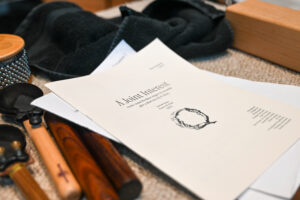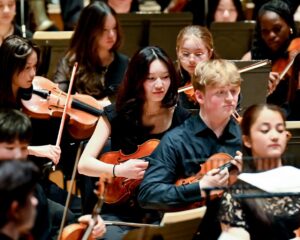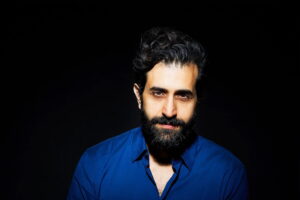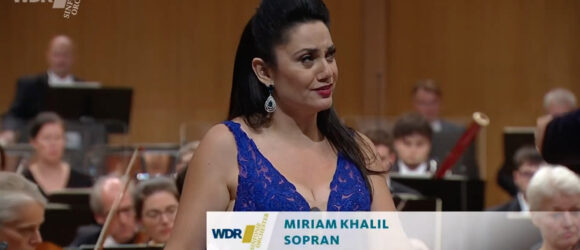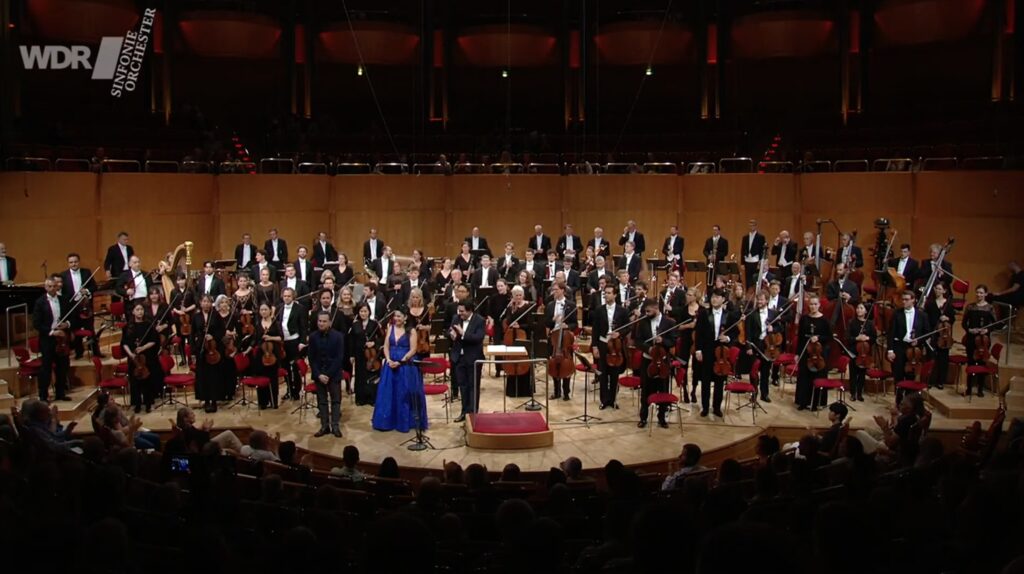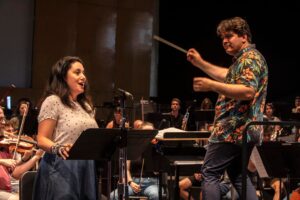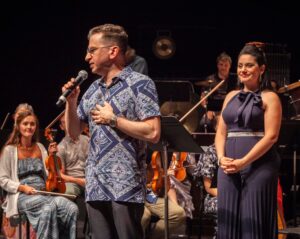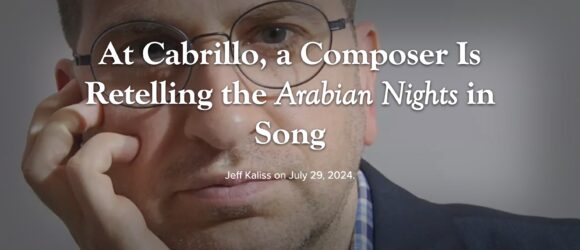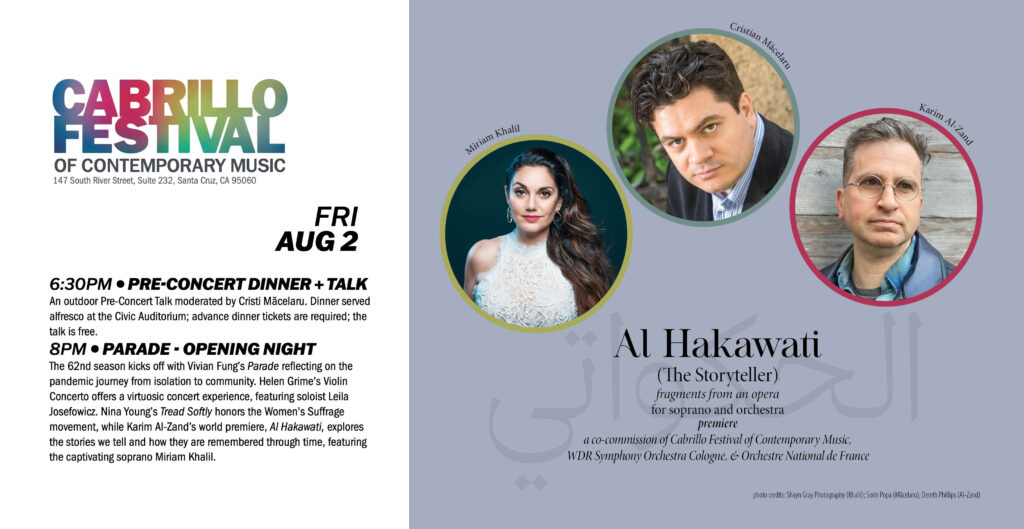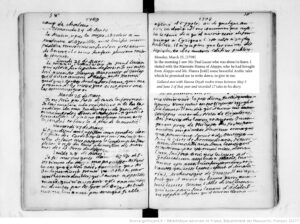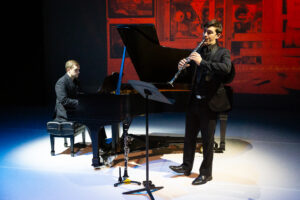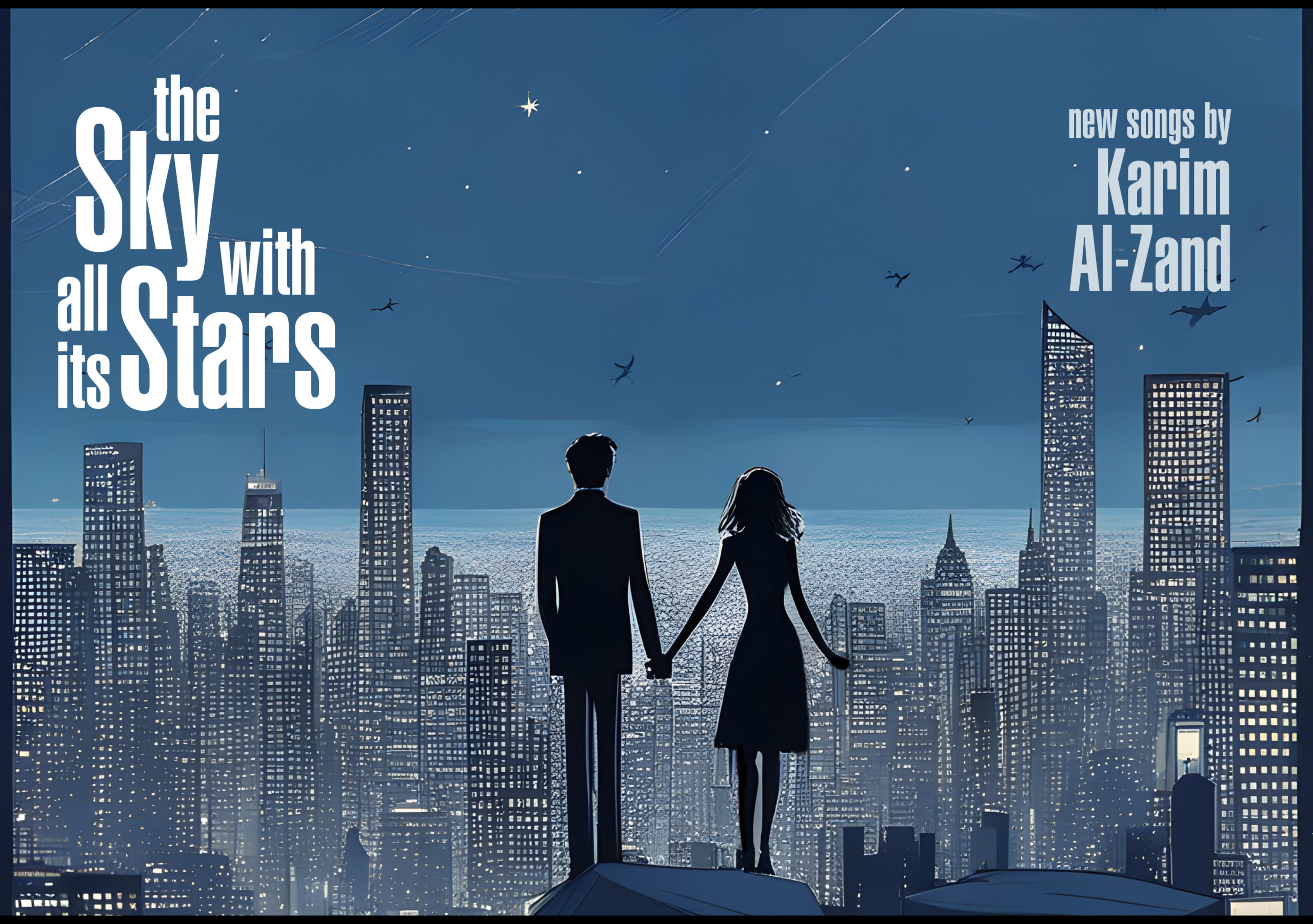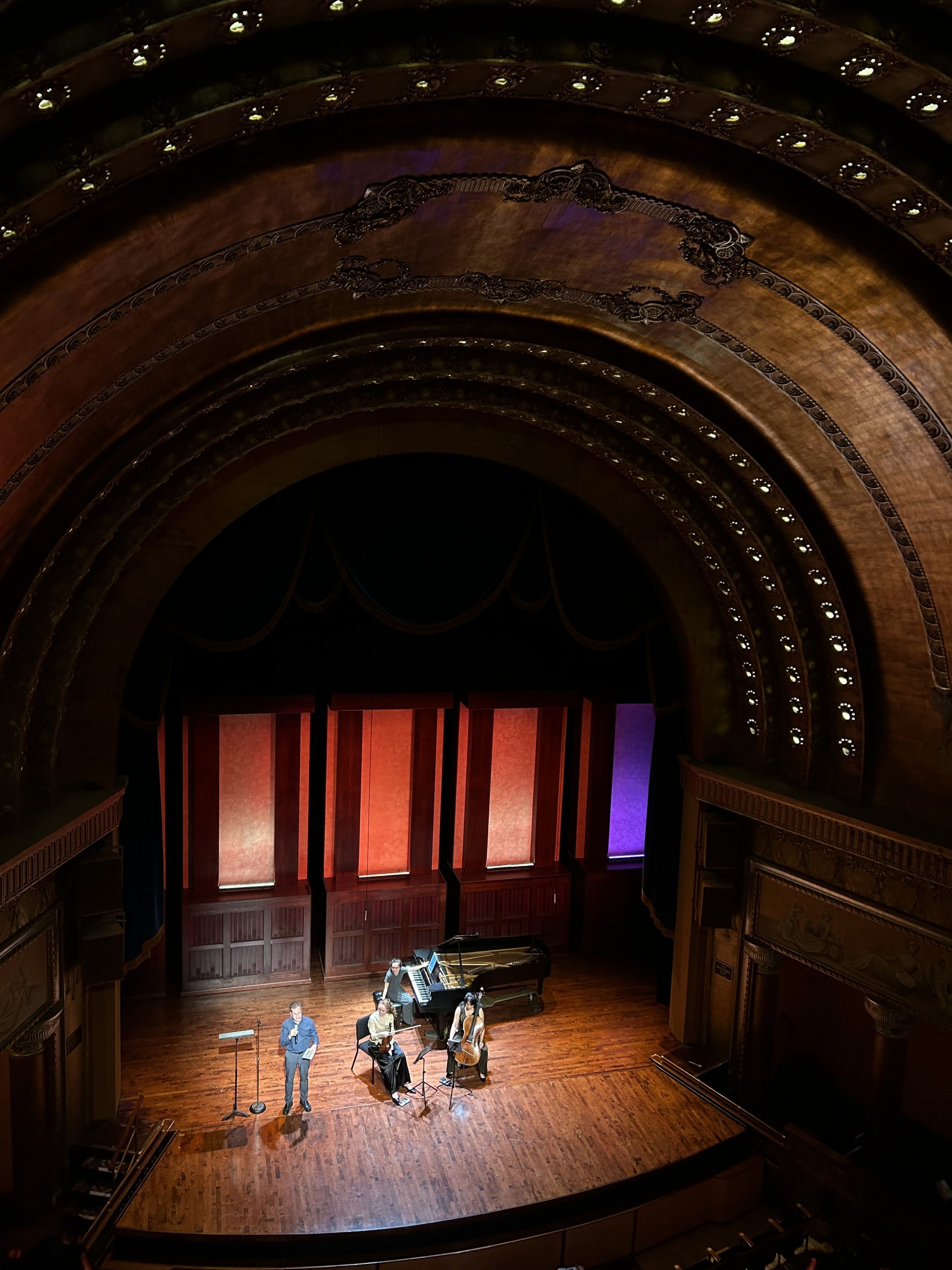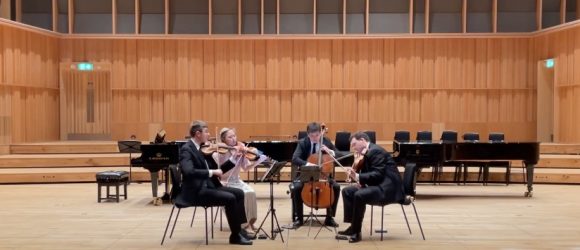A Joint Interest premiere for Shepherd School’s 50th Anniversary
- On January 26, 2026
- By alzand@rice.edu
- In EVENTS, News, Performances
 0
0
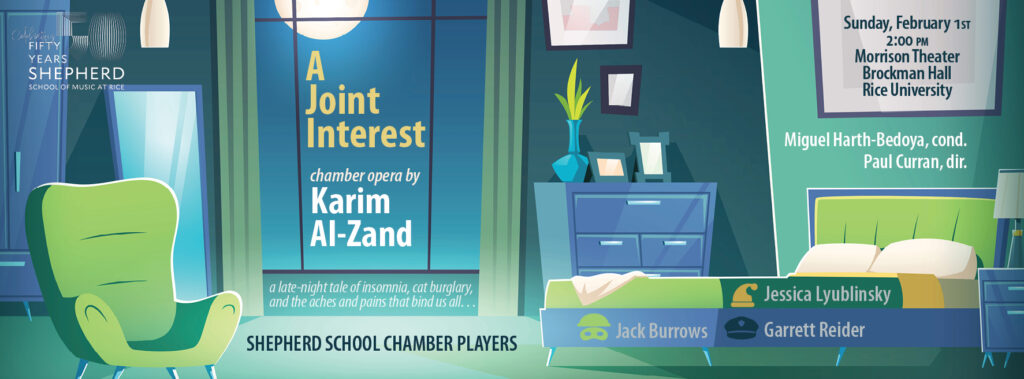 The chamber opera A Joint Interest was commissioned by the Shepherd School of Music (with funding assistance from Rice University Office of Research) on the celebratory occasion of the school’s 50th anniversary. Its premiere performance on Sunday, February 1st, 2pm will take place in the Morrison Theater of Brockman Hall at Rice University.
The chamber opera A Joint Interest was commissioned by the Shepherd School of Music (with funding assistance from Rice University Office of Research) on the celebratory occasion of the school’s 50th anniversary. Its premiere performance on Sunday, February 1st, 2pm will take place in the Morrison Theater of Brockman Hall at Rice University.
National Youth Orchestra of Great Britain performs City Scenes
- On January 06, 2026
- By alzand@rice.edu
- In EVENTS, News, Performances, Reviews/Press
 0
0
The National Youth Orchestra of Great Britain, under conductor Alexandre Bloch, kicked off their Shimmer tour—a program which includes City Scenes—with a performance at the Barbican Center on January 5th. Concerts in Warwick Centre (January 6) and Nottingham Royal Concert Hall (January 7th) will follow. Reviewers from The Guardian, Times and Telegraph tripped over themselves to compare the music to dead composers they have ready notions about (America + Orchestra + Jazz = Bernstein!). UPDATE more reviews: reviewsgate.com and A Young(ish) Perspective. PLUS three, more reviews.
“The Bernstein-brash, neon blare of Karim Al-Zand’s 2006 City Scenes introduced new swagger, a cheeky little phrase hopping around the orchestra like a sonic Artful Dodger, and strings and harps a gleaming foil to streetwise brass and woodwind.”
The Guardian
“…urban, Bernstein-ish sound of City Scenes, by Tunisian-born American composer Karim Al-Zand was a breeze, and the delicately “wrong-note” solos from a handful of violins in the dreamy slow movement had a deliciously louche quality.”
The Telegraph
…with plenty of chewy textures for the players — and some nifty solo work slickly delivered by the orchestra’s leader Aki Blendis — and driven rhythms that have a hint of Shostakovich, but a Shostakovich who has been airlifted from Moscow and taken to Miami for a weekend.
The Times of London
City Scenes performed by National Youth Orchestra of the UK
- On December 27, 2025
- By alzand@rice.edu
- In EVENTS, News, Performances
 0
0
The National Youth Orchestra of Great Britain, under conductor Alexandre Bloch, will perform City Scenes as part of their Shimmer program, in three New Year London concerts: Barbican Centre (January 5), Warwick Centre (January 6) and Nottingham Royal Concert Hall (January 7th).
2025/2026 Season Premieres
- On August 31, 2025
- By alzand@rice.edu
- In EVENTS, News
 0
0
The 2025-2026 season will feature the world premiere of two major new works: The Strangers’ Case, an extended song cycle for tenor and string orchestra and A Joint Interest, a comic chamber opera for three singers and ensemble.
The Strangers’ Case, written for Grammy Award winning tenor Karim Sulayman, will be performed in Houston on March 28th, as a co-presentation of the dynamic conductorless string orchestra Kinetic and pioneering new music presenters Musiqa. A performance in Boston’s Jordan Hall on May 9th by Grammy-Nominated ensemble A Far Cry will follow.
Subtitled <songs and chronicles of the immigrant experience>, The Strangers’ Case gathers together poems, personal accounts and other literary sources from newcomers to the United States. Drawing on texts from a variety of cultures, voices and time periods, it paints a layered emotional narrative of our complicated history with “strangers” to our shores. Its title is borrowed from Shakespeare’s monologue for Thomas More, which eloquently argues for empathy and compassion towards displaced people. Several of its texts are taken from a unique 1906 publication entitled Life Stories of Undistinguished Americans as Told By Themselves, a series of personal, turn-of-the-century accounts by immigrants to the United States: “Lady in the Harbor” is the story of a young Polish girl destined for the textile sweatshops, and “Such an Illumination” is from a Syrian refugee fleeing persecution in his homeland. “Island of Angels” excerpts lines written in the wake of the 1882 Asian Exclusion Act. This anonymous poem,
Several of its texts are taken from a unique 1906 publication entitled Life Stories of Undistinguished Americans as Told By Themselves, a series of personal, turn-of-the-century accounts by immigrants to the United States: “Lady in the Harbor” is the story of a young Polish girl destined for the textile sweatshops, and “Such an Illumination” is from a Syrian refugee fleeing persecution in his homeland. “Island of Angels” excerpts lines written in the wake of the 1882 Asian Exclusion Act. This anonymous poem, 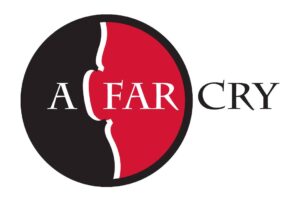 translated from the Chinese, was found inscribed on the wooden walls of a San Francisco Bay immigrant detention facility. The cycle also includes a remarkable and prescient 1908 poem by Arthur Upson, “The Statue of Liberty (New York Harbor, A.D. 2900)” that imagines the New York harbor of the far future: the Statue of Liberty is unearthed, sunken in the mire, discovered by a “tyrant who misrules our land.”
translated from the Chinese, was found inscribed on the wooden walls of a San Francisco Bay immigrant detention facility. The cycle also includes a remarkable and prescient 1908 poem by Arthur Upson, “The Statue of Liberty (New York Harbor, A.D. 2900)” that imagines the New York harbor of the far future: the Statue of Liberty is unearthed, sunken in the mire, discovered by a “tyrant who misrules our land.”
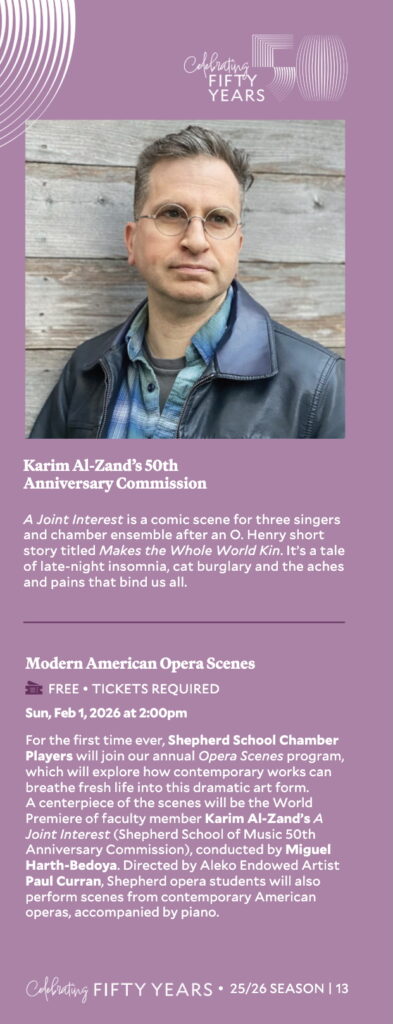 A Joint Interest was commissioned by the Shepherd School of Music on the occasion of its 50th anniversary. The libretto is a modern re-telling of O. Henry’s “Makes the Whole World Kin,” a classic yarn from America’s beloved short-story writer. A chamber opera buffa, A Joint Interest is a comic scene of late-night insomnia, cat burglary, and the aches and pains that bind us all. The performance, led by Director of Orchestras, Miguel Harth-Bedoya, Professor of Opera Studies, Joshua Winograde, director Paul Curran, and a stellar cast of student singers and instrumentalists, will have its premiere Sunday February 1st on the Shepherd School’s stunning Morrison Theater stage.
A Joint Interest was commissioned by the Shepherd School of Music on the occasion of its 50th anniversary. The libretto is a modern re-telling of O. Henry’s “Makes the Whole World Kin,” a classic yarn from America’s beloved short-story writer. A chamber opera buffa, A Joint Interest is a comic scene of late-night insomnia, cat burglary, and the aches and pains that bind us all. The performance, led by Director of Orchestras, Miguel Harth-Bedoya, Professor of Opera Studies, Joshua Winograde, director Paul Curran, and a stellar cast of student singers and instrumentalists, will have its premiere Sunday February 1st on the Shepherd School’s stunning Morrison Theater stage.
“The burglar stepped inside the window quickly, and then he took his time. A burglar who respects his art always takes his time before taking anything else.” O. Henry (Makes the Whole World Kin)
A complete list of 2025-2026 season performances can be found in the events listing.
Banff Interplay Opera Workshop
- On July 30, 2025
- By alzand@rice.edu
- In EVENTS, News
 0
0
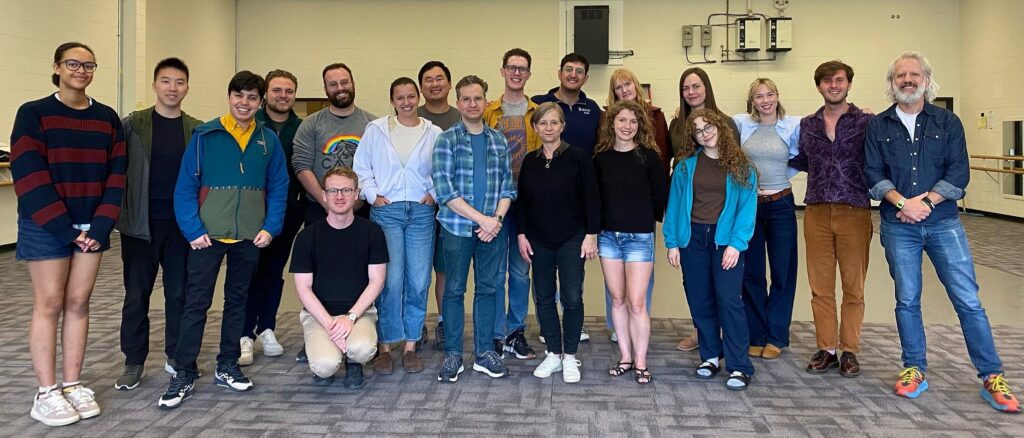 The 2025 Interplay program at the Banff Centre for Arts and Creativity showcases young singers and instrumentalists in both opera and chamber music performance. Their July 27th show, “An Evening with Karim Al-Zand” followed two weeks of rehearsals and workshops on new scenes, songs and other vocal music. The concert included workshop performances of The Strangers’ Case, A Joint Interest and two scenes from the forthcoming opera project The Book of Tales, plus select solo songs. [Preview from Winnipeg’s Classic 107.] The artists were guided in the workshops by a range of faculty including director Joel Ivany, conductor Sandra Horst and pianist Spencer Kryzanowski.
The 2025 Interplay program at the Banff Centre for Arts and Creativity showcases young singers and instrumentalists in both opera and chamber music performance. Their July 27th show, “An Evening with Karim Al-Zand” followed two weeks of rehearsals and workshops on new scenes, songs and other vocal music. The concert included workshop performances of The Strangers’ Case, A Joint Interest and two scenes from the forthcoming opera project The Book of Tales, plus select solo songs. [Preview from Winnipeg’s Classic 107.] The artists were guided in the workshops by a range of faculty including director Joel Ivany, conductor Sandra Horst and pianist Spencer Kryzanowski.
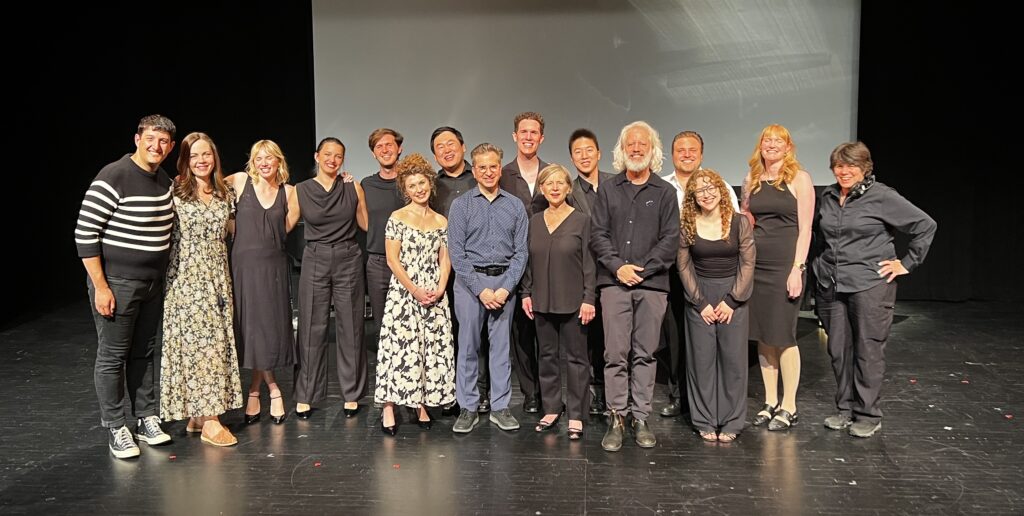
Al Hakawati concert film released
- On December 07, 2024
- By alzand@rice.edu
- In EVENTS, News
 0
0
WDR Sinfonieorchester Köln has just released a concert film of the September 21st European premiere of Al Hakawati (The Story Teller), featuring Miriam Khalil, and conducted by music director Cristian Măcelaru. The work is a co-commission of the Cabrillo Festival of Contemporary Music, WDR Sinfonieorchester Köln and Orchestre National de France.
Al Hakawati presents fragments from an opera-in-progress entitled The Book of Tales. The opera is inspired by a recent discovery about a beloved story collection: the so-called “Arabian Nights.” The exact provenance of these medieval Arabic tales—properly known as Alf Laylah wa-Laylah (One Thousand and One Nights)—has always been something of a mystery. That all changed in 1993 when a forgotten 18th century Arabic manuscript was found in the Vatican library. It was a travel memoir written by a 75-year-old Syrian storyteller named Hanna Diyab. It recounts how, as a young man in 1707, the young Diyab had embarked on an extraordinary, years-long journey to Europe. His incredible adventures culminated in a meeting with the Sun King, King Louis XIV, in the halls of Versailles. Diyab told entrancing stories to everyone he met in his travels, including to Antoine Galland, a translator and archaeologist in Paris. It was Galland who, in 1710, first introduced Western readers to the stories of Ali Baba and Aladdin in Les Mille et une Nuits—though Galland makes no mention of Diyab. The storyteller returned to Aleppo in 1709 and eventually became a successful cloth merchant. He seems to have had no idea how far his captivating stories had travelled.
The opera connects stories and storytellers across time and place: from the present day, to the Ancien Régime of France, to the imaginary world of Scheherazade. The fragments in Al Hakawati comprise four “scenes” that feature the opera’s principal female characters.
1. I shiver, I tremble
The famed storyteller Scheherazade contemplates her precarious circumstances: each night she tells stories to the murderous Shahryar to postpone her execution.
I shiver, I tremble,
Trapped in a story of woe.
Frightening and violent.
Beyond these walls, this sky,
Another storyteller wanders free.
I would dance with her, my sister,
As the world shares her stories.
A different time, and place,
Another hakawati gathers friends.
I would sing with him, my brother,
As the world shares his stories.
Worlds interwoven with words and wishes.
Another Scheherazade, from afar.
I shiver, I tremble,
Trapped in a story of woe.
Frightened, but not silent.
2. He sleeps, this one
Shahryar is finally asleep. Consumed with fury, Scheherazade prepares to set his bed alight.
He sleeps, this one…
Sleeps the sleep of cruelest kings,
and of wickedness;
a callous and cold sleep, deep.
I seethe, inside…
Seethe with rage that terror brings,
and its bitterness;
with each breath left to breathe, seethe.
I can no longer weep.
The wound is too deep.
Sleep! In a burning keep!
Sleep! Sleep! The righteous flames will leap!
3. Dance of the seven swords (orchestra)
Murjana dances for her husband, Ali Baba, and a visiting merchant. She alone has discerned their guest’s true identity: he is Nadir, the leader of a band of thieves. He plans to kill her witless husband, who has foolishly stolen their treasure. At the climax of the dance she dispatches the villain.
4. For all I know
Tarina Safar, a modern-day scholar of medieval Arabic, has discovered Hanna Diyab’s manuscript in the Vatican library. She marvels at the power of stories and of storytellers.*
For all I know,
a story has wings, that it might soar—
fledged in a mind,
flying from our lips,
flocking to eager ears,
to open our dreaming eyes—
homing to our hearts.
Swirling stories—in droves they take a murmuring shape,
in forms that scrape the drawn dawn—
tracing a truth in the sky.
نبي الشعب
لعنة الملوك
حكواتي حكواتي
اشرح لنا حكمة الاشياء
For all I know,
a tale is a pilgrim, that it might journey—
migrating from world to world,
message in its satchel,
moving through ages,
arriving here—
to camp in our hearts.
Traveling tales—a caravan with load of amber,
flutes and tambour the dawn down—
leaving lessons in the sand.
Hakawati, teller of tales:
the people’s prophet,
the curse of kings.
Hakawati, Hakawati!
Show us the wisdom of things!
*Safar’s character is fictional, but she is inspired by the American scholar of Islam, Nabia Abbott (1897–1981), the first female professor at the University of Chicago’s Oriental Institute. Abbott did some of the earliest research into the origins of the Thousand and One Nights.
Al Hakawati Receives European Première
- On October 01, 2024
- By alzand@rice.edu
- In EVENTS, News, Reviews/Press
 0
0
Al Hakawati received its European premiere on September 22 at the Kölner Philharmonie, in a performance by soprano Miriam Khalil and the WDR Symphony Orchestra, under the direction of Cristian Măcelaru. Also on the program was Shostakovich’s Cello Concerto No.1 ( Sheku Kanneh-Mason), and Rimsky Korsakov’s Scheherazade, Op. 35. Al Hakawati is a co-commission of the Cabrillo Festival of Contemporary Music, WDR Sinfonieorchester Köln and the Orchestre National de France.
Al Hakawati (The Storyteller) presents fragments from an opera-in-progress entitled The Book of Tales. The opera is inspired by a recent discovery about a beloved story collection, the so-called “Arabian Nights.” The exact provenance of these medieval Arabic tales, properly known as Alf Laylah wa-Laylah [One Thousand and One Nights], has always been something of a mystery. That all changed in 1993 when a forgotten 18th century Arabic manuscript was found in the Vatican library. It was a travel memoir written by a 75-year-old Syrian storyteller named Hanna Diyab. In 1707, the young Diyab had embarked on an extraordinary, years-long journey to Europe. His incredible adventures culminated in a meeting with the Sun King, King Louis XIV, in the halls of Versailles. Diyab told his entrancing stories to everyone he met in his travels, including to Antoine Galland, a translator and archaeologist in Paris. It was Galland who, in 1710, first introduced Western readers to the stories of Ali Baba and Aladdin in Les Mille et une Nuits—though Galland makes no mention of the storyteller. Diyab returned to Syria in 1709 and eventually became a successful cloth merchant in Aleppo.
He seems to have had no idea how far his captivating stories had travelled.
The opera connects stories and storytellers across time and place: from the present day, to the Ancien Régime of France, to the imaginary world of Scheherazade. And, though the “frame story” is Diyab’s, the most significant characters in the story are women. The fragments in Al Hakawati comprise four “scenes” that feature the opera’s three principal female characters.
Al Hakawati Premiered at 2024 Cabrillo Festival of Contemporary Music
- On August 30, 2024
- By alzand@rice.edu
- In EVENTS, News
 0
0
Al Hakawati, a new work for soprano and orchestra received its premiere on August 2nd in Santa Cruz, CA at the 2024 Cabrillo Festival of Contemporary Music, with soprano Miriam Khalil and conductor Cristian Mӑcelaru. The work will be repeated on September 21 by the WDR Sinfonieorchester Köln in Germany. The work is a co-commission of Cabrillo, WDR and l’Orchestre National de France (who will do the work in 2026).
Al Hakawati (The Storyteller) presents fragments from an opera-in-progress entitled The Book of Tales. The opera is inspired by a recent discovery about a beloved story collection, the so-called “Arabian Nights.” The exact provenance of these medieval Arabic tales, properly known as Alf Laylah wa-Laylah [One Thousand and One Nights], has always been something of a mystery. That all changed in 1993 when a forgotten 18th century Arabic manuscript was found in the Vatican library. It was a travel memoir written by a 75-year-old Syrian storyteller named Hanna Diyab. In 1707, the young Diyab had embarked on an extraordinary, years-long journey to Europe. His incredible adventures culminated in a meeting with the Sun King, King Louis XIV, in the halls of Versailles. Diyab told his entrancing stories to everyone he met in his travels, including to Antoine Galland, a translator and archaeologist in Paris. It was Galland who, in 1710, first introduced Western readers to the stories of Ali Baba and Aladdin in Les Mille et une Nuits—though Galland makes no mention of the storyteller. Diyab returned to Syria in 1709 and eventually became a successful cloth merchant in Aleppo.He seems to have had no idea how far his captivating stories had travelled.
The opera connects stories and storytellers across time and place: from the present day, to the Ancien Régime of France, to the imaginary world of Scheherazade. And, though the “frame story” is Diyab’s, the most significant characters in the story are women. The fragments in Al Hakawati comprise four “scenes” that feature the opera’s three principal female characters.
Al Hakawati preview
- On August 05, 2024
- By alzand@rice.edu
- In EVENTS, News, Uncategorized
 0
0
I recently spoke to Jeff Kaliss of The San Francisco Classical Voice about the premiere performance of Al Hakawati at the Cabrillo Festival of Contemporary Music.
Al Hakawati @ Cabrillo Preview
- On July 22, 2024
- By alzand@rice.edu
- In EVENTS, News
 0
0
I Care If You Listen previews the Cabrillo Festival of Contemporary Music summer 2024 schedule, which includes the premiere of Al Hakawati. Co-Commissioned by Cabrillo, WDR Sinfonieorchester Köln & Orchestre National de France, the work was written for Canadian soprano Miriam Khalil and conductor by Cristian Măcelaru and will receive its premiere at the festival on its opening concert Friday August 2nd.
Al Hakawati co-commissioned by Cabrillo Festival, WDR Sinfonieorchester Köln & Orchestre National de France
- On May 08, 2024
- By alzand@rice.edu
- In EVENTS, News
 0
0
A new work for soprano and orchestra Al Hakawati, co-commissioned by the Cabrillo Festival of Contemporary Music, WDR Sinfonieorchester Köln & Orchestre National de France will premiere next season, with Canadian soprano Miriam Khalil and conductor by Cristian Măcelaru. The work will receive its premiere at the Cabrillo Festival of Contemporary Music on August 2nd. A second performance with WDR Sinfonieorchester Köln is scheduled for September 21, with a following performance in Paris, TBA.
Al Hakawati (The Storyteller) presents fragments from an opera-in-progress entitled The Book of Tales. The opera is inspired by a recent discovery about a beloved story collection, the so-called “Arabian Nights.” The exact provenance of these medieval Arabic tales, properly known as Alf Laylah wa-Laylah [One Thousand and One Nights], has always been something of a mystery. That all changed in 1993 when a forgotten 18th century Arabic manuscript was found in the Vatican library. It was a travel memoir written by a 75-year-old Syrian storyteller named Hanna Diyab. In 1707, the young Diyab had embarked on an extraordinary, years-long journey to Europe. His incredible adventures culminated in a meeting with the Sun King, King Louis XIV, in the halls of Versailles. Diyab told his entrancing stories to everyone he met in his travels, including to Antoine Galland, a translator and archaeologist in Paris. It was Galland who, in 1710, first introduced Western readers to the stories of Ali Baba and Aladdin in Les Mille et une Nuits—though Galland makes no mention of the storyteller. Diyab returned to Syria in 1709 and eventually became a successful cloth merchant in Aleppo. He seems to have had no idea how far his captivating stories had travelled.
The opera connects stories and storytellers across time and place: from the present day, to the Ancien Régime of France, to the imaginary world of Scheherazade. And, though the “frame story” is Diyab’s, the most significant characters in the story are women. The fragments in Al Hakawati comprise four “scenes” that feature the opera’s three principal female characters.
1. I shiver, I tremble
The famed storyteller Scheherazade contemplates her precarious circumstances: each night she tells stories to the murderous Shahryar to postpone her execution.
2. He sleeps, this one
Shahryar is finally asleep. Consumed with fury, Scheherazade prepares to set his bed alight.
3. Dance of the seven swords (orchestra)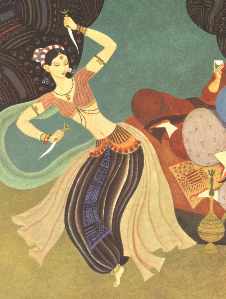
Murjana dances for her husband, Ali Baba, and a visiting merchant. She alone has discerned their guest’s true intent: he plans to kill her witless husband, who has foolishly stolen treasure from a band of thieves. At the dance’s climax she dispatches the villain.
4. For all I know
Tarina Safar*, a modern-day scholar of medieval Arabic, has discovered Hanna Diyab’s manuscript in the Vatican library. She marvels at the power of stories and of storytellers.
* Safar’s character is fictional, but she is inspired by the American scholar of Islam, Nabia Abbott (1897–1981), the first female professor at the University of Chicago’s Oriental Institute. Abbott discovered some of the earliest known fragments from the Thousand and One Nights.
Houston Symphony Orchestra commissions new work for 24-25 season
- On May 08, 2024
- By alzand@rice.edu
- In EVENTS, News
 0
0
Al-Jazari’s Ingenious Clocks is inspired by the fantastical inventions of 12th century Islamic polymath Ismail al-Jazari: scholar, inventor, engineer, artist and mathematician. His remarkable treatise, “The Book of Knowledge of Ingenious Mechanical Devices,” describes fifty machines he engineered to perform various tasks. Coupled with his own colorful illustrations, the fountain, a band of mechanical musicians, a hydraulic “perpetual flute,” a self-cleaning washbasin, and a mechanized“butler” who prepares drinks. book evokes a fairy-tale world of automated devices: a dancing water 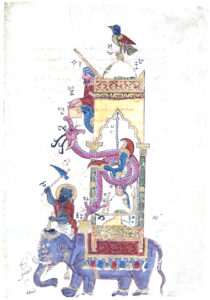 Known as the “father of robotics” for his revolutionary work in engineering and automation, al-Jazari’s devices are fascinating both functionally and aesthetically.
Known as the “father of robotics” for his revolutionary work in engineering and automation, al-Jazari’s devices are fascinating both functionally and aesthetically.
But perhaps his most beautiful and captivating designs are his many mechanical clocks. These include elaborate candle clocks (triggered by dripping wax), an astronomical “castle clock,” a programmable clock of mechanical drummers (who beat out the hours!), a portable “scribe clock” and a giant “elephant clock” (at right).
Al-Jazari’s Ingenious Clocks is an evocative time piece, a musical journey to a vivid world of invention and imagination. It captures the vision and whimsy of these enchanting time machines, built with a prescience that anticipates our automated modern world.
Luctus Profugis to feature in Minnesota Orchestra’s 24-25 season
- On May 07, 2024
- By alzand@rice.edu
- In EVENTS, News
 0
0
Luctus Profugis will be featured in the 2024-205 season of the Minnesota Orchestra, conducted by Thomas Søndergård. The concerts on May 8 & 9, 2025 at Orchestra Hall, will also feature Mozart (Ingrid Fliter playing Piano Concerto No. 17) and Shostakovich (Symphony No. 11, The Year 1905). Written in 2016, Luctus Profugis is a lament for string orchestra and vibraphone that reflects on the 2015–2019 European refugee crisis. The title translates roughly from the Latin as “Grief for the Displaced.”
Cabinet of Curiosities on Musiqa
- On January 26, 2024
- By alzand@rice.edu
- In EVENTS, Musiqa, News
 0
0
The Harlequin Duo (Clarinetist Nick Davies and pianist Wesley Ducote) performed Cabinet of Curiosities on a Musiqa concert on January 20th and 21st in Houston, a program in which Musiqa and NobleMotion Dance continued their pioneering collaboration with the University of Houston BRAIN Center. “Meeting of Minds” featured a new ballet with music by Anthony Brandt, choreography by Andy and Dionne Noble, and projections by Badie Khaleghian. The program also included new works for dance by Badie Khaleghian and Marcus Karl Maroney. Davies and Ducote later recorded Cabinet of Curiosities (and another chamber work, Swimmy) in a session with engineer Andy Bradley in Stude Concert Hall at Rice University—both recordings slated for upcoming release. Below, the Harlequin Duo jam in 11/8 (2+2+3+2+2) for the sixth movement, Divisions on a Bulgarian Rhythm.
The Sky With All Its Stars
- On December 19, 2023
- By alzand@rice.edu
- In EVENTS, News
 0
0
A January 16th recital at the Shepherd School of Music features the premiere of several new song cycles for voice and piano performed by guest artists Aidan Soder (mezzo-soprano), Wesley Ducote (piano), Mark Diamond (baritone), Michael Clark (piano), Marcus DeLoach (baritone), Grant Loehnig (piano), and Shepherd School students James Palmer (piano), Caitlin Aloia (soprano), Julia Holoman (mezzo-soprano) and William Dopp (bass-baritone). The program includes selections from Tagore Love Songs, Orange Torches Against the Rain, and Two Songs on poems of Reg Huston and the world premiere of: Vespertine Songs, Four Not So Serious Songs, Unsentimental Love Songs and Your Letter Pleased Me Greatly.
Vespertine Songs are melodies of the night. Of an Evening is drawn from the descriptive prose of Charles Dickens (1812–1870), whose brooding evocation of a darkening city emphasizes a timeless, cyclic quality. Marina Tsvetaeva’s (1892–1941) Insomnia has us wandering with a sleepless night owl and finding no solace in the streets. In Points and Lines Aldous Huxley (1894–1963) paints a beautiful metaphor of a night sky, a summer lake and the revelatory wonder of stars. “Anne Knish” is a pseudonym of Arthur Davison Ficke (1883–1945), a conservative American poet whose many “spectralist” poems like Nocturne parodied the imagist movement. Poetic irony then, that these are the only verses for which he is remembered. Nocturne is a nighttime soundscape of sorts: the enveloping noises of the evening fade into the distance, replaced by something even more magical.
Four Not So Serious Songs comprise light-hearted settings of two poems by Robert Graves (1895–1985) and two by me. In This Song is Going to End our poor singer faces a looming existential crisis. An intemperate child protests his lot in Careers, a song which takes the form of a school-yard taunt. The nested structure of Warning to Children makes it a perfect poem for a patter song, its tripping rhythms spiraling down the page. So You Say is a gentle rebuke of melodramatic love songs, and a parody of their romantic tropes.
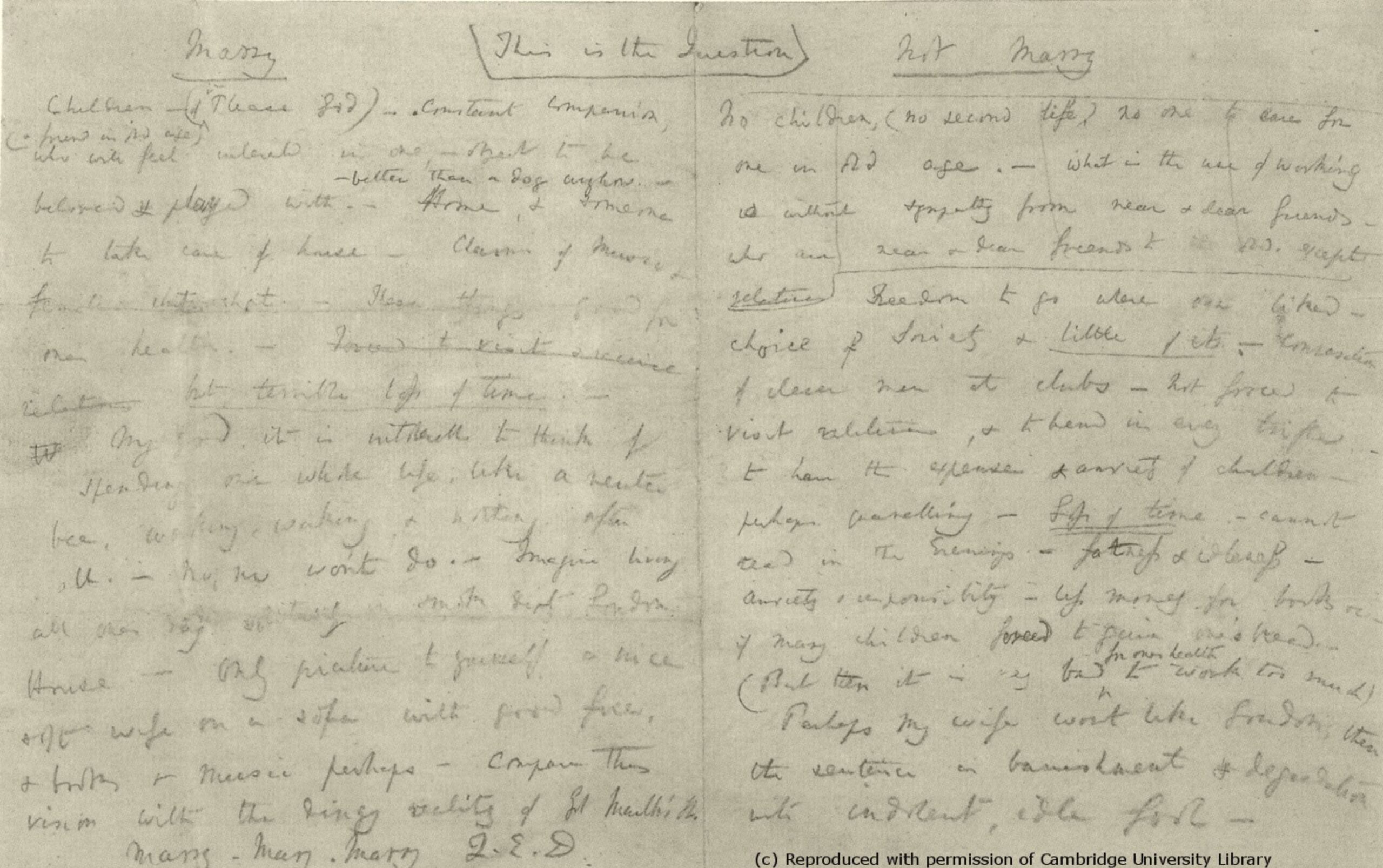
Unsentimental Love Songs are devoted to the quotidian side of love. The text of This is the Question is drawn from a page in Charles Darwin’s diary (above), when the famed scientist methodically weighs the pros and cons of his impending nuptials. His sensitive, if somewhat self-absorbed character comes across charmingly in his amorous analysis. Edna St. Vincent Millay’s (1892–1950) sonnet I Shall Forget You Presently, My Dear is a classic unsentimental love poem, one of many to feature her delicate balance of scoffing wit and fragile sincerity.
Your Letter Pleased Me Greatly is based on text by Erasmus (1466–1536), from the Dutch theologian’s book on rhetoric, Copia: Foundations of the Abundant Style (1512). In a virtuosic demonstration of prose embellishment, he famously provides 195 variations of the simple sentence “Tuae litterae me magnopere delectarunt” [Your letter pleased me greatly]—each variation bringing a very different sense and sentiment to the same basic point. Twenty variants are used in my piece for soprano and piano, and the work’s approach reflects the same conceit: each short “variation” uses similar musical material, but projected with a succession of different moods, characters, and structural forms.
Balourdet Quartet performs Strange Machines in Summer Season
- On June 28, 2023
- By alzand@rice.edu
- In EVENTS, News, Reviews/Press
 0
0

The Balourdet Quartet will include Strange Machines in their summer season with performances at festivals including:
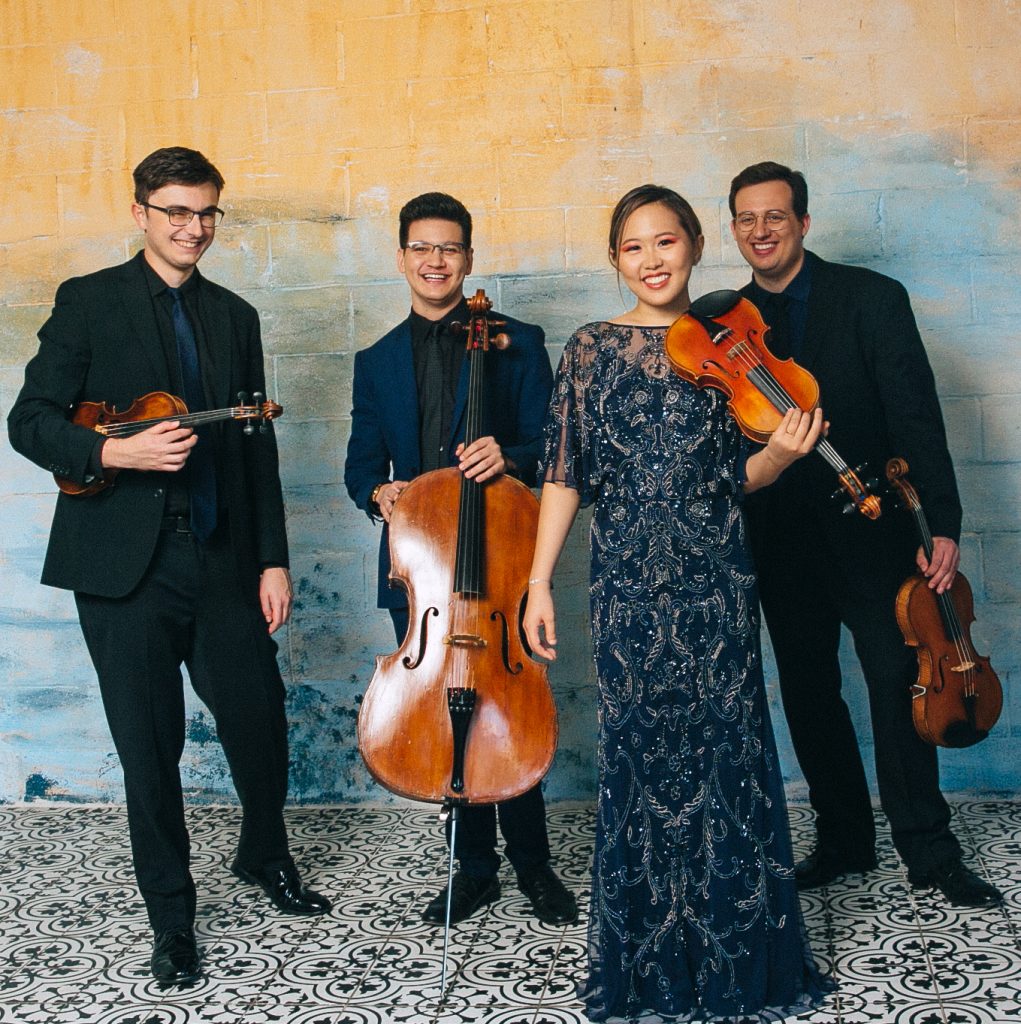
Taos School of Music Chamber Music Festival
Rockport Chamber Music Festival
Green Lake Festival of Music
Honest Brook Music Festival
Music Mountain Summer Festival
Green Mountain Chamber Music Festival
Nantucket Musical Arts Society
Portsmouth Athenaeum Chamber Music Series.
The Boston Musical Intelligencer reviewed their recent performance at Rockport.
Merz Trio premieres Lines in Motion at Chamber Music Columbus
- On May 08, 2023
- By alzand@rice.edu
- In EVENTS, News
 0
0
May 6th saw the Merz Trio premiere Lines in Motion at the concluding concert of Chamber Music Columbus‘ 75th anniversary season. Works by seven composers were commissioned by CMC over the course of their 2022-2023 season. (Lines in Motion was co-commissioned by Chamber Music Houston, where the work was played on January 17th.) The program, presented at the beautiful historic Southern Theatre, included works by Rachmaninov, Shostakovich and Schumann, and opened with a celebratory fanfare by Ching-chu Hu and poetry by poet laureate Jennifer Hambrick.
Parizade and the Singing Tree performed for Family Concert
- On February 20, 2023
- By alzand@rice.edu
- In EVENTS, News
 0
0
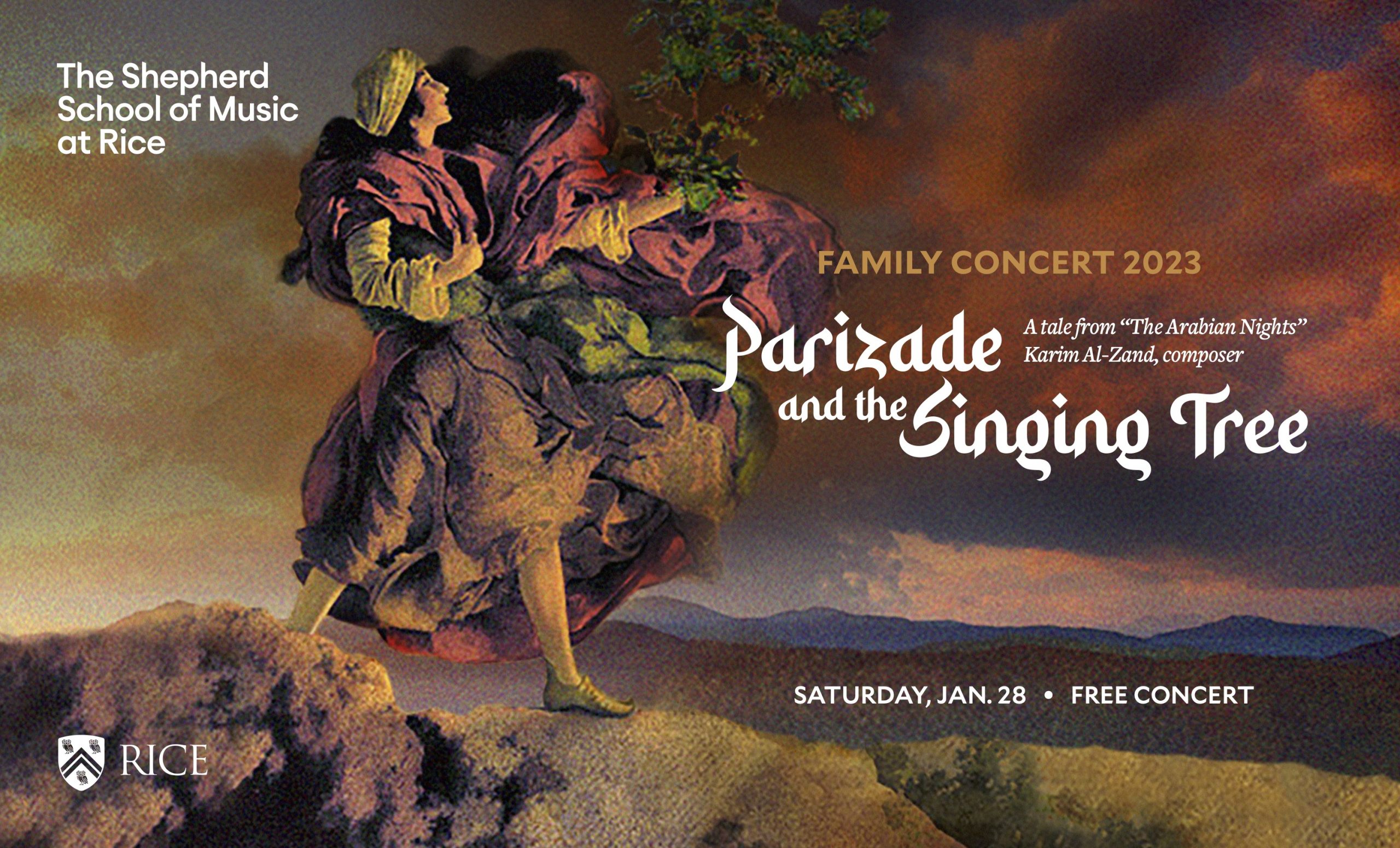 Rice University’s annual “Family Concert” will present Parizade and the Singing Tree for narrator and ensemble. This tale from the 1001 Nights (or, so called “Arabian Nights”) will be narrated by singer and educator Rachel Buchman, and conducted by Michael Webster. Take your family on a thrilling adventure as a musical story unfolds before your ears! A brave and determined Parizade is on a quest to find a magical singing tree but encounters challenges (like a mysterious old dervish) along the way. Will she prevail in her journey?
Rice University’s annual “Family Concert” will present Parizade and the Singing Tree for narrator and ensemble. This tale from the 1001 Nights (or, so called “Arabian Nights”) will be narrated by singer and educator Rachel Buchman, and conducted by Michael Webster. Take your family on a thrilling adventure as a musical story unfolds before your ears! A brave and determined Parizade is on a quest to find a magical singing tree but encounters challenges (like a mysterious old dervish) along the way. Will she prevail in her journey?
Saturday, Jan. 28 | Stude Concert Hall at Rice University; Shepherd School Chamber Orchestra | Rachel Buchman, narrator| Michael Webster, conductor
• 10:30 a.m. — Meet the musicians and their instruments before the concert.
• 11 a.m. — Enjoy a family-friendly, 55-minute concert, featuring a living composer!
Best for ages 6 and up. Registration is recommended but not required. Park in West Lot 2 for $5.
RESERVE YOUR FREE TICKETS TODAY! MUSIC.RICE.EDU/FAMILY
Music for these Distracted Times
- On February 20, 2023
- By alzand@rice.edu
- In EVENTS, News
 0
0
Music for these Distracted Times was a January 23rd concert featuring recent works connected by their shared commentary on recent times. From the program notes: “At this point, it’s difficult to describe the last few years in anything but glib catchphrases: “unprecedented events,” “the new normal,” “shocking but not surprising,” and so on… It has felt maddeningly absurd, impossible to escape, never-ending: health crises, political deceit, violent extremism, racial animus. Typically, the music I write isn’t reactive. But like many composers, my recent work has been inspired (if that’s the word) by the upheaval around us. Tonight’s program contains compositions written mostly over the last few years, a product of these distracted times. The pieces have a variety of moods and characters, but they share a kind of tattered anxiety—a sentiment that has perhaps become the temperament of our time.”

The concert featured guest appearances by Matthew Roitstein, Natalie Lin Douglas, Ally Smither, Ben Roidl-Ward, Mei Rui, Jon Kimura Parker, Brian Connelly, and students of the Shepherd School of Music. The program included Songs from the Post Truth Era (written in 2018 for the Pushback Collective, who reprised the work), Pattern Preludes, Book 4, Ignoble Dances (written in 2020 for Mathew Roitstein, but here receiving its LIVE premiere), Loop Studies (the premiere of this work for violin and looper pedal, written in 2021 for Natalie Lin Douglas) and Lamentation on The Disasters of War (a string sextet from 2006).
Balourdet Quartet plays Strange Machines in UK Tour
- On February 20, 2023
- By alzand@rice.edu
- In EVENTS, News
 0
0
In February the Balourdet Quartet embarked on their first UK tour, including a debut performance at Wigmore Hall. Their programs feature Strange Machines, a new work written for them, and commissioned with the assistance of Chamber Music America. The tour included an appearance on BBC 3 Radio 3’s In Tune, where they played the second movement of the work, “Goldberg Machine.” Listen to the performance here (starts at 1:36:32). The Balourdet will perform the piece in the US in upcoming concerts beginning with the New York City premiere on April 4 at the Kaufman Music Center’s Merkin Hall.

